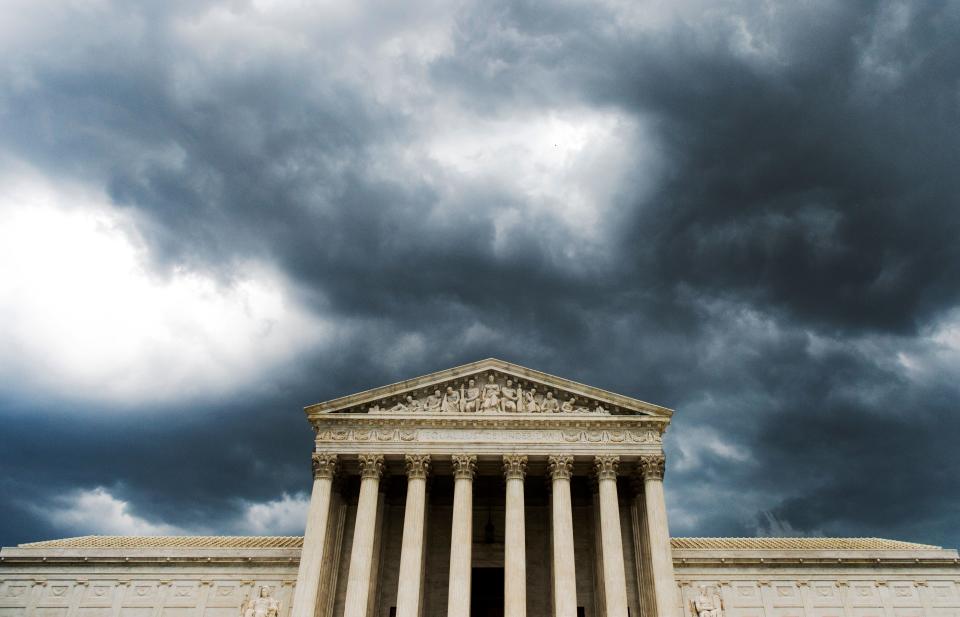What Ruth Bader Ginsburg's Death Means For A Potentially Contested Election
The death of Justice Ruth Bader Ginsburg on Friday night leaves the Supreme Court with just eight members — and a potentially calamitous deadlock during a presidential election that could easily produce challenges that reach the high court.
The Supreme Court routinely hears cases and issues opinions during its terms after the untimely death of a justice. In 2016, after Justice Antonin Scalia died, it still released opinions on a number of important cases. So what happens if that case is one that could decide who wins the presidential election? And what if it ends in a 4-4 tie?
With Ginsburg’s death, there are now five conservatives, all appointed by Republicans, and three liberals, all appointed by Democrats. Even if Ginsburg were alive and Chief Justice John Roberts adhered to the conservative side, Trump would likely prevail in any election challenge. But Roberts has been prone to heterodoxy before.
In the event of a tie, the court will usually issue a single-line collective decision, noting that the court simply affirms the lower court’s decision. In this case, that would mean whichever appellate court ruled on the case before it made its way up to the Supreme Court would win. This means the presidential election could be decided based simply on the makeup of an appellate court wherever a critical appeal occurs.
That could be good for Trump, as McConnell has used Trump’s 2016 victory to turn the Senate into a nonstop judicial appointment factory. Trump has had 53 appellate court nominees confirmed in his first term, 29 more than Obama had in his two terms combined. Trump appointees now make up 30% of all appellate court seats.
Cases will wind their way up through the courts based on regional districts. This means a postelection challenge in Wisconsin would come through a different set of courts than a challenge in Arizona or Florida.

Key swing states, such as Florida, Michigan, Pennsylvania and Wisconsin, are all under the jurisdictions of...



